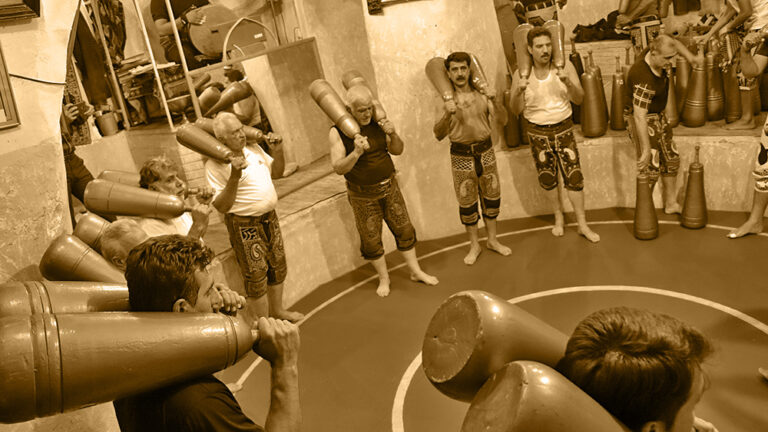Unleashing Potential Through the Power of Team Sports
There’s something magical about the roar of a crowd, the thrill of the game, and the unmistakable camaraderie that blossoms in the heat of competition. Team sports have a unique ability to bring people together, transcending individual differences and fostering a sense of unity. In the world of athletics, there’s a common saying: “There is no ‘I’ in team.” While it’s a simple phrase, the truth behind it runs deep. Team sports not only enhance athletic skills but also unleash personal potential in ways that extend far beyond the playing field.
The Social Fabric of Team Sports
Participating in team sports weaves a rich tapestry of social interactions that can profoundly shape an individual. From my own experiences, I can attest to the friendships that formed on the soccer field—a place where competitive spirits clashed, yet bonds were forged. Whether it was the post-game pizza parties or the inside jokes that only teammates understand, these moments solidified connections that often last a lifetime.
What’s fascinating is how these relationships can influence mental well-being. Studies have shown that team participation can significantly reduce feelings of isolation and loneliness. According to research published in the *Journal of Sports Psychology*, individuals engaged in team sports reported higher levels of self-esteem and lower levels of anxiety. Team sports create an environment where people feel valued and supported, which is a vital aspect of personal development.
Building Leadership and Communication Skills
Leadership isn’t just for captains or coaches. In team sports, every player has the opportunity to step into a leadership role, whether it’s motivating a teammate during a tough match or taking the initiative to strategize during practice. I recall a pivotal moment in my basketball career when I was chosen as a team captain. It was both exhilarating and terrifying! Suddenly, I was responsible not just for my performance but for the morale of my teammates. It taught me the importance of effective communication, empathy, and decisiveness—all skills that have served me well beyond the court.
Experts like Dr. Sarah Thompson, a sports psychologist, emphasize that “team sports provide a natural setting for developing leadership skills. You learn to communicate effectively, resolve conflicts, and make collective decisions.” So, the next time your child complains about having to play on a team, remind them that they are not just learning how to shoot hoops or kick a ball, but also how to lead and connect with others.
Encouraging Resilience and Adaptability
Life is full of ups and downs, and team sports mirror this reality beautifully. The ability to bounce back from defeat is a crucial life skill, one that is often cultivated in the throes of competition. When I think back to my high school volleyball days, I vividly remember losing a crucial match after leading for most of the game. My heart sank, but it was the subsequent team huddle—filled with tears, laughter, and encouragement—that taught us resilience. We learned that losing isn’t the end; it’s merely a stepping stone to future success.
In a study conducted by the *Institute of Sport and Exercise Science*, researchers found that athletes who engage in team sports demonstrate higher levels of resilience compared to individuals participating in solo sports. The shared experience of overcoming challenges fosters a deep sense of camaraderie, which in turn nurtures a growth mindset. This adaptability—learning from mistakes and adjusting strategies—becomes a vital tool in both sports and life.
Enhancing Physical and Mental Health
Let’s not overlook the obvious benefits: team sports can lead to better physical health. Regular participation helps in maintaining a healthy weight, improving cardiovascular fitness, and building muscle strength. But the mental health benefits are equally compelling. Engaging in team sports releases endorphins, those delightful little hormones that boost mood and alleviate stress. I remember the feeling of euphoria after a particularly intense soccer match; it was almost like a natural high. (Not that I recommend chasing down that feeling with an ice cream sundae—though it was definitely tempting!)
Moreover, team sports encourage a commitment to fitness that might be harder to achieve alone. When teammates count on you, it’s easier to stay motivated and show up for practice. The American Heart Association suggests that children and adolescents who participate in sports are more likely to continue being physically active into adulthood. It’s a habit that pays dividends in the long run.
Promoting Inclusivity and Diversity
In today’s world, promoting inclusivity is more important than ever, and team sports offer a perfect platform for this. Teams comprise individuals from various backgrounds, cultures, and skill levels, teaching acceptance and appreciation of diversity. I once played on a mixed-gender soccer team, and the experience opened my eyes to the different perspectives and strengths each player brought to the game. It was like a mini-world where collaboration and respect were essential for success.
According to a study published in the *International Review for the Sociology of Sport*, teams that embrace diversity not only perform better but also create a more positive environment. This inclusivity is vital for fostering mutual respect and understanding among players, which can translate into broader social benefits.
Life Skills Beyond the Field
Let’s take a moment to talk about the skills that extend far beyond the game itself. Team sports teach vital life skills that can be applied in various contexts. Here are a few noteworthy ones:
- Time Management: Balancing practice, games, and schoolwork requires effective time management—a skill that will serve athletes well in their academic and professional futures.
- Goal Setting: Setting and achieving goals is a fundamental aspect of sports. Athletes learn to break down larger goals into achievable steps, a strategy that can be useful in any area of life.
- Conflict Resolution: Disagreements on the field are inevitable. Learning to resolve conflicts amicably teaches players how to navigate disputes in real life.
- Teamwork: The ability to work collaboratively towards a common goal is a skill that will be invaluable in any career.
These skills are not merely beneficial; they are essential for success in the modern world. Employers today are increasingly looking for candidates who can demonstrate strong teamwork and communication skills—traits that are often honed in the arena of team sports.
Case Studies of Success
To illustrate the transformative power of team sports, let’s take a look at a few inspiring case studies. One such example is the story of the 1999 U.S. Women’s National Soccer Team. Their victory in the FIFA Women’s World Cup not only showcased their athletic prowess but also paved the way for future generations of female athletes. The team became role models, inspiring countless girls to engage in sports and pursue their dreams.
Another example is the “Special Olympics,” which has changed countless lives by providing opportunities for individuals with intellectual disabilities to participate in sports. The program fosters inclusivity and showcases the remarkable talents of its athletes, while also teaching valuable life lessons about teamwork, respect, and perseverance.
These stories are not just about winning trophies; they are about triumphing over adversity, breaking down barriers, and showing the world what can be achieved when people come together.
The Role of Coaches and Mentors
Behind every successful team is a coach who believes in the players. Coaches play a pivotal role in shaping the team culture and instilling values that go beyond just winning games. A great coach is not only a strategist but also a mentor who inspires athletes to reach their full potential. I had the privilege of having a coach who pushed me to be my best while also emphasizing the importance of sportsmanship and integrity. (I still remember the time he made us run laps for every unsportsmanlike conduct—let’s just say it was a lesson learned!)
Research has shown that effective coaching can significantly enhance the positive impact of sports on youth. A study by the *American Journal of Sports Science* found that athletes who reported having supportive coaches were more likely to experience improved self-esteem and emotional well-being. Coaches who foster a positive environment create a ripple effect that can influence the entire team.
Challenges and Barriers in Team Sports
Despite the myriad benefits, it’s important to acknowledge the challenges and barriers that exist in the realm of team sports. Access to quality sports programs can be limited in certain communities, particularly for underprivileged youth. Economic disparities can prevent talented individuals from participating, which is a loss not just for the players but for society as a whole.
Moreover, the pressure to win can sometimes overshadow the fundamental values of teamwork and personal growth. The intense focus on results can lead to burnout and anxiety among young athletes. It’s crucial for parents, coaches, and communities to create an environment where the joy of playing takes precedence over the pursuit of victory at all costs.
Looking Ahead: The Future of Team Sports
The future of team sports is bright, with innovative approaches and technologies reshaping how we engage with athletics. From virtual training sessions to apps that promote teamwork and collaboration, the landscape is ever-evolving. The rise of eSports is also worth mentioning—while it may not fit the traditional mold of physical sports, it embodies many of the same principles of teamwork, strategy, and competition.
As we look ahead, it’s vital to ensure that the core values of team sports remain intact. Encouraging inclusivity, fostering resilience, and nurturing personal growth should always be at the forefront. After all, the ultimate goal of team sports isn’t just to produce champions but to help individuals unleash their full potential in all aspects of life.
In Conclusion
The power of team sports is undeniable. From enhancing social connections to building essential life skills, the benefits are vast and varied. Whether you’re an athlete, a coach, or a spectator, the lessons learned on the field echo throughout life. So, the next time you find yourself cheering for your favorite team or reflecting on your own sports experiences, take a moment to appreciate the profound impact that team sports have on individuals and communities alike. Who knows? You might just find yourself inspired to lace up those sneakers and join a team!













